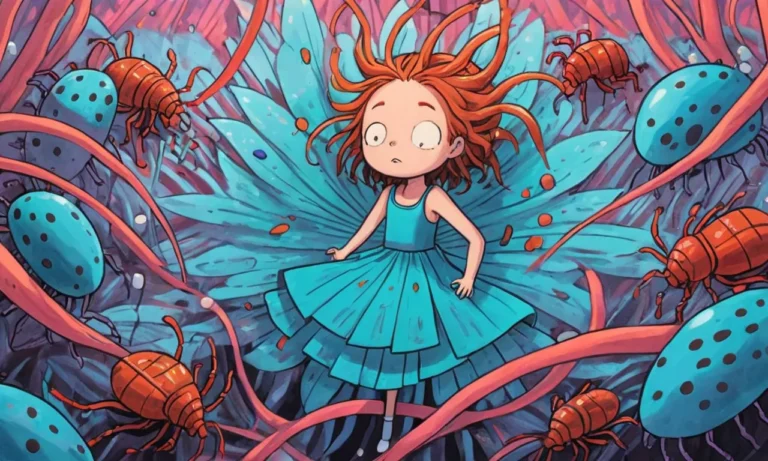What Does Dreaming About Poop Mean?
Hey there! Have you ever had a dream about poop and wondered what it could mean? Well, you’re not alone. Many people have pondered over the symbolism behind such dreams. Let’s dive into this curious topic together and unravel some possible explanations for these strange nighttime visions.
The Symbolic Nature of Dreams
First things first: dreaming is a fascinatingly complex process that involves various brain regions working together to create visual, auditory, or sensory experiences while we sleep. These dreams can be influenced by our emotions, thoughts, memories, and even external factors like stress or diet.
Now, when it comes to interpreting the meaning behind these dreams, there is no one-size-fits-all answer. Different symbols and images can carry different meanings for different people. However, understanding the symbolic language of our dreams might help us make sense of them.
Poop in Dreams: A Look at Possible Meanings
Dreaming about poop might seem unpleasant or embarrassing, but remember that dreams often use vivid imagery to convey deeper emotions or messages. Here are a few possible interpretations for dreaming about poop:
Emotional Release: Sometimes, our bodies need to release pent-up emotions or stress in unusual ways – like through a dream involving poop! If you’ve been holding onto any negative feelings, this could be your subconscious mind’s way of telling you it’s time to let go and move on.
Feeling Overwhelmed: If you feel overwhelmed by work or personal issues, dreaming about poop might symbolize a sense of being “backed up” or unable to handle everything at once. This dream could serve as a reminder that it’s okay to ask for help or prioritize self-care.
Health Concerns: Occasionally, dreams can reflect physical health concerns. If you’ve been experiencing digestive issues, it may show up in your dreams as poop-related imagery. However, if this becomes a recurring theme, it might be worth discussing with your healthcare provider.
Communication Issues: Dreams about poop could also indicate unresolved conflicts or communication problems in waking life. It may suggest that you need to express yourself more openly and honestly, whether at work or within personal relationships.
Fear of Judgment: In some cases, dreaming about poop might symbolize a fear of being judged or criticized by others. This could stem from past experiences where you felt embarrassed or ridiculed for something innocent or normal (like needing to use the bathroom). Your subconscious mind may be using this image as a way to confront and overcome these fears.
The Importance of Personal Context
While these interpretations can provide some insight into what dreaming about poop might mean, it’s essential to consider your own personal context when trying to understand the message behind your dreams. Take note of any recurring themes or symbols, as well as how you felt during the dream and upon waking up.
Additionally, pay attention to any significant life events or changes that have occurred recently, as these can influence the content of your dreams. By connecting the dots between your dreams and everyday experiences, you’ll be better equipped to decipher their meanings and apply them to improve your overall well-being.
Final Thoughts
Dreaming about poop may not seem like the most pleasant topic, but remember that our dreams often serve as a reflection of our inner thoughts and emotions. By exploring these symbols and interpretations, we can gain valuable insights into ourselves and work towards personal growth and self-improvement.
So next time you find yourself dreaming about poop, don’t be too quick to dismiss it – instead, take some time to reflect on what this symbol might represent in your life. After all, understanding the language of our dreams can help us navigate both waking and sleeping life with greater clarity and purpose.
Remember, if you ever feel overwhelmed or concerned about recurring dreams involving poop or other distressing imagery, it’s always a good idea to reach out to a mental health professional for support and guidance.







